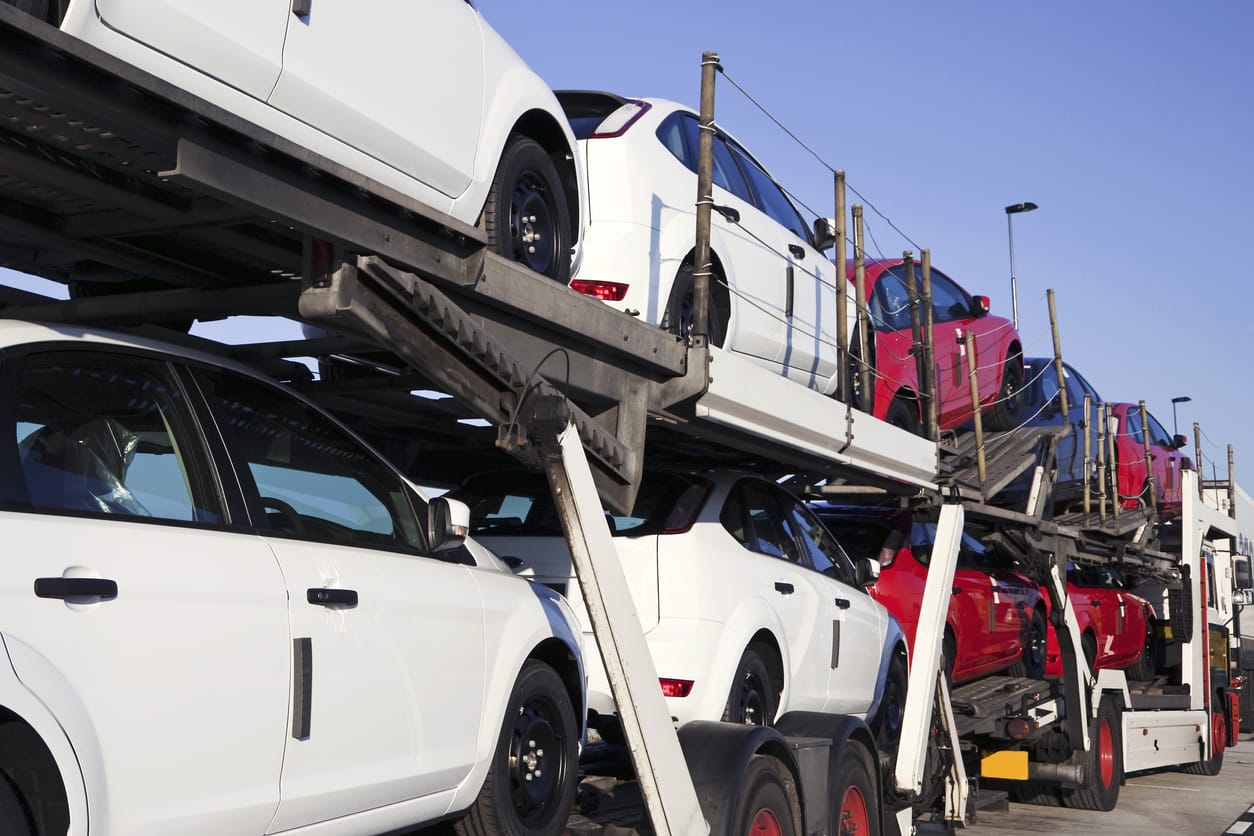You’ve just bought a brand-new car from a dealer several states away. You’re excited to get behind the wheel of your new ride, but you’re faced with a problem – how do you get your car from the dealer to your doorstep? This is where car shipping comes into play.
Car shipping, also widely called auto transport, is the process of transporting a vehicle from one location to another. It can be done domestically or internationally and can involve moving any type of vehicle – from cars and trucks to motorcycles and boats.
The importance of car shipping cannot be overstated. It allows people to purchase vehicles from dealers or private sellers located across the country, without having to drive to the location to pick them up. Car shipping also allows for the relocation of vehicles, whether it’s due to a move or a job transfer.

But why use car shipping instead of just driving the vehicle to the desired location? For one, it can save time and money. Long-distance driving can take a toll on a vehicle and require frequent stops for gas, food, and lodging. Additionally, some people may not have the time to take a road trip or may not feel comfortable driving long distances.
One of the main advantages of auto transport is convenience. It saves you the time and money that you would have spent driving your car yourself. For instance, if you are relocating to a different part of the country, it could take you several days to drive your car to your destination. However, by shipping your car, you can fly to your destination and find your vehicle readily available when you arrive.
Another advantage of auto transport is safety. By using the services of a trustworthy auto transport company, you can have peace of mind knowing that your vehicle will be treated with utmost care and will reach its intended location in the exact same condition it was dispatched. This is especially important for valuable or rare cars that need special handling.
In this article, we’ll provide a comprehensive overview of car shipping. In this post, we will cover the various types of car shipping services that are available, the factors that can impact car shipping costs, how to properly prepare your vehicle for shipment, and what to consider when selecting a car shipping company. Whether you are a first-time car buyer or a seasoned car collector, this piece will equip you with the necessary knowledge to make informed decisions about car shipping.

When it comes to car shipping, there are two main types of services available – open carrier shipping and enclosed carrier shipping. Let’s dive in and see which option is right for you.
Open Carrier Shipping: Open carrier shipping is the most common type of car shipping service. It involves transporting vehicles on an open-air trailer with no walls or roof. These trailers can typically carry anywhere from 5-10 vehicles at a time, and the vehicles are secured with straps and chains to prevent movement during transit.
One of the biggest advantages of open carrier shipping is that it is more affordable than enclosed carrier shipping. This is because the open-air trailers can carry more vehicles at once, which helps to keep costs down. Additionally, open carrier shipping is generally faster than enclosed carrier shipping, as there are more open carriers on the road than enclosed carriers.
However, open carrier shipping does come with some disadvantages. The biggest disadvantage is that your vehicle is exposed to the elements during transit. This means that it could potentially be damaged by weather, debris, or other external factors. Additionally, because the trailer is open, your vehicle may be visible to others on the road, which could make it a target for theft or vandalism.
Enclosed Carrier Shipping: Enclosed carrier shipping involves transporting vehicles in an enclosed trailer with walls and a roof. These trailers can typically carry anywhere from 1-6 vehicles at a time, and the vehicles are secured with straps and blocks to prevent movement during transit.
One of the biggest advantages of enclosed carrier shipping is that it provides greater protection for your vehicle during transit. Because the trailer is enclosed, your vehicle is protected from the elements and other external factors that could potentially cause damage.
Additionally, because the trailer is locked and sealed, your vehicle is less likely to be targeted for theft or vandalism.
However, enclosed carrier shipping does come with some disadvantages. The biggest disadvantage is that it is more expensive than open carrier shipping. This is because the enclosed trailers can carry fewer vehicles at a time, which drives up the cost of transportation. Additionally, enclosed carrier shipping may take longer than open carrier shipping, as there are fewer enclosed carriers on the road.
In conclusion, when deciding which type of car shipping service to use, it’s important to consider the advantages and disadvantages of each option. Open carrier shipping is more affordable and faster, but your vehicle is exposed to the elements during transit.
Enclosed carrier shipping provides greater protection for your vehicle, but it is more expensive and may take longer. Weighing the pros and cons of each will inform decision that best meets your needs and budget.
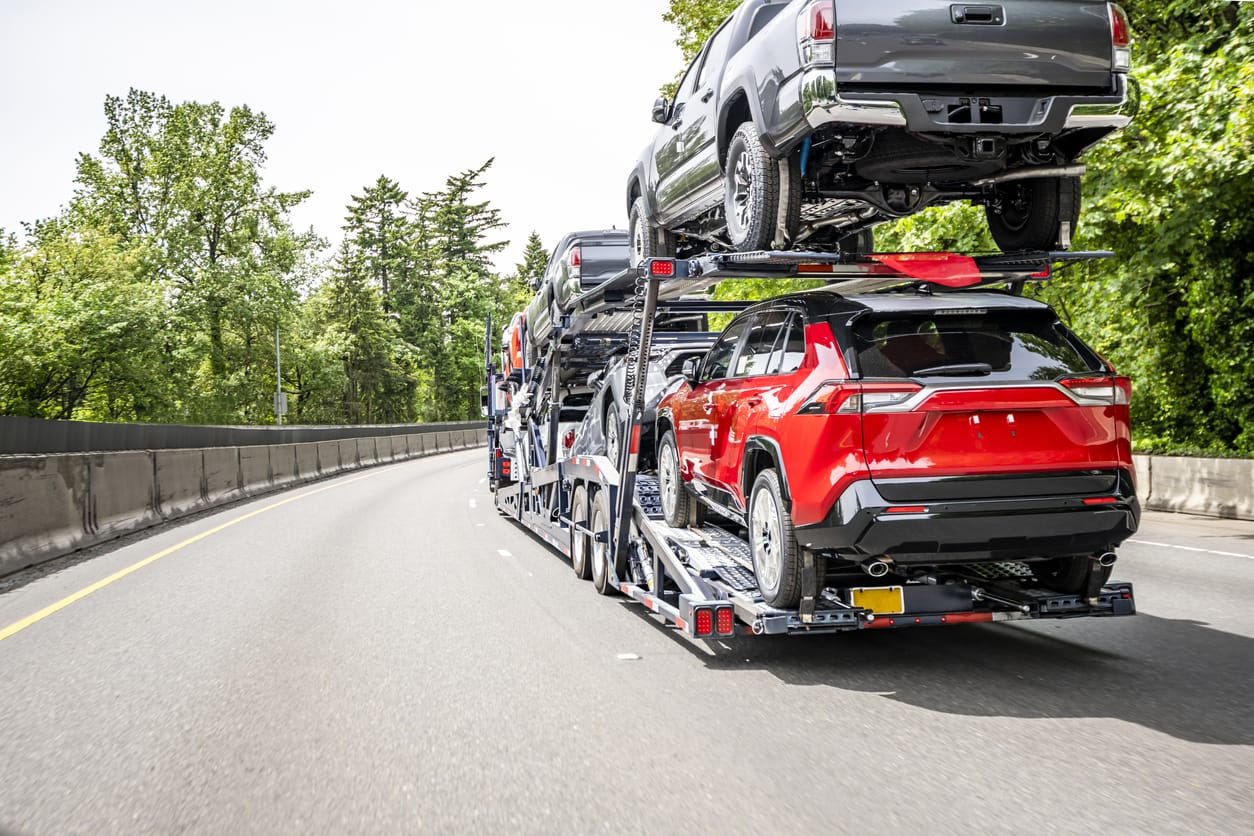
- Cost-effective: Open carrier shipping is generally more affordable than enclosed carrier shipping, as more vehicles can be transported at once.
- Faster: Because there are more open carriers on the road than enclosed carriers, open carrier shipping is generally faster.
- Availability: Open carriers are more readily available than enclosed carriers, making it easier to find a carrier for your vehicle.
- Easy Inspection: Since the vehicles are transported in open trailers, it is easier to inspect them for any damages before loading and after unloading.
- Exposure to Elements: The biggest disadvantage of open carrier shipping is that your vehicle is exposed to the elements during transit. This means that it could potentially be damaged by weather, debris, or other external factors.
- Limited protection: Open carriers do not have any walls or roofs, which means that the vehicles are not fully protected from road hazards or debris kicked up from the road.
- Potential for theft: Since vehicles are exposed during transport, they may be more susceptible to theft or vandalism.
- Lack of privacy: Because the vehicles are visible to others on the road, some people may not feel comfortable with their vehicles being on display.

- Protection: Enclosed carrier shipping offers complete protection to your vehicle, shielding it from external factors such as weather, road debris, and other hazards.
- Security: Enclosed carriers are typically more secure than open carriers, making it less likely that your vehicle will be stolen or vandalized during transit.
- Privacy: Enclosed carriers offer privacy for your vehicle, keeping it out of sight from others on the road.
- Customizable: Enclosed carriers can be customized to fit specific types of vehicles, ensuring a perfect fit and maximum protection during transit.
- Cost: Enclosed carrier shipping is generally more expensive than open carrier shipping due to the added protection and security it provides.
- Limited Availability: Enclosed carriers are less commonly available than open carriers, making it more difficult to find a carrier for your vehicle.
- Slower: Enclosed carrier shipping may be slower than open carrier shipping due to the limited availability and customization options.
- Difficult Inspection: Since the vehicles are enclosed during transport, it may be more difficult to inspect them for any damages before loading and after unloading.
It’s important to consider the advantages and disadvantages of enclosed carrier shipping when deciding which type of car shipping service to use, especially if you are transporting a high-value or classic vehicle that requires maximum protection during transit.

One of the most convenient and popular options is door-to-door auto shipping. This service ensures that your vehicle is picked up from your doorstep and delivered to your desired location.
Door-to-door auto shipping is a hassle-free and convenient option for those who don’t want to go through the trouble of dropping off or picking up their vehicle from a designated location. The service is available for both open and enclosed carriers, and it can be customized to meet your specific needs.
- Convenience: The biggest benefit of door-to-door auto shipping is the convenience it provides in terms of time and effort. You don’t have to worry about dropping off or picking up your vehicle from a designated location as the carrier will come to your doorstep.
- Time-saving: Door-to-door auto shipping is a time-saving option as you don’t have to spend time driving your car to the drop-off location or waiting for it to be delivered to a designated pickup location.
- Personalized service: The service can be customized to meet your specific needs, including pickup and delivery times and locations.
- Reduced risk of damage: As the vehicle is picked up and delivered to your doorstep, there’s less chance of damage occurring during the transportation process.
- Cost: Door-to-door auto shipping can be more expensive than other types of car shipping services due to the personalized and convenient nature of the service.
- Accessibility: Not all areas may be accessible for door-to-door auto shipping, especially if your location is in a remote or hard-to-reach area.
- Limited flexibility: As the carrier needs to plan their route based on their schedule and other pickups and deliveries, there may be limited flexibility in terms of pickup and delivery times.

Car shipping costs vary based on several factors and understanding these factors can help you make better decisions when choosing a shipping service. Here are some of the key factors that can affect car shipping costs:
- Distance: The distance between the pickup location and the destination is a significant factor in determining the shipping cost. The farther the distance, the higher the cost will be. Carriers must account for fuel expenses, tolls, and other costs when transporting your vehicle.
- Type of vehicle: The type of vehicle you are shipping can also affect the cost. Larger vehicles, such as trucks and SUVs, typically cost more to ship than smaller cars. Additionally, luxury cars and high-end sports cars may require special handling or enclosed shipping, which can also increase the cost.
- Type of shipping service: There are two main types of shipping services: open and enclosed. Open carriers are more affordable but offer less protection for your vehicle, while enclosed carriers provide better protection but come at a higher cost.
- Timing of the shipment: The timing of your shipment can also affect the cost. If you need your car shipped quickly, you may have to pay more for expedited services. Similarly, shipping during peak seasons, such as summer, can also result in higher costs due to increased demand.
- Additional services: Several additional services can increase the cost of car shipping, such as door-to-door delivery, expedited shipping, and insurance coverage. While these services can provide added convenience and peace of mind, they do come at an additional cost.
It’s important to research and compares multiple carriers to find the best balance of affordability and quality for your specific needs.
The cost of shipping a car can vary based on several factors. Here,we will provide an overview of the average cost of car shipping, explore the various factors that can affect the price of shipping a car, and offer tips on how to save money when shipping a vehicle.
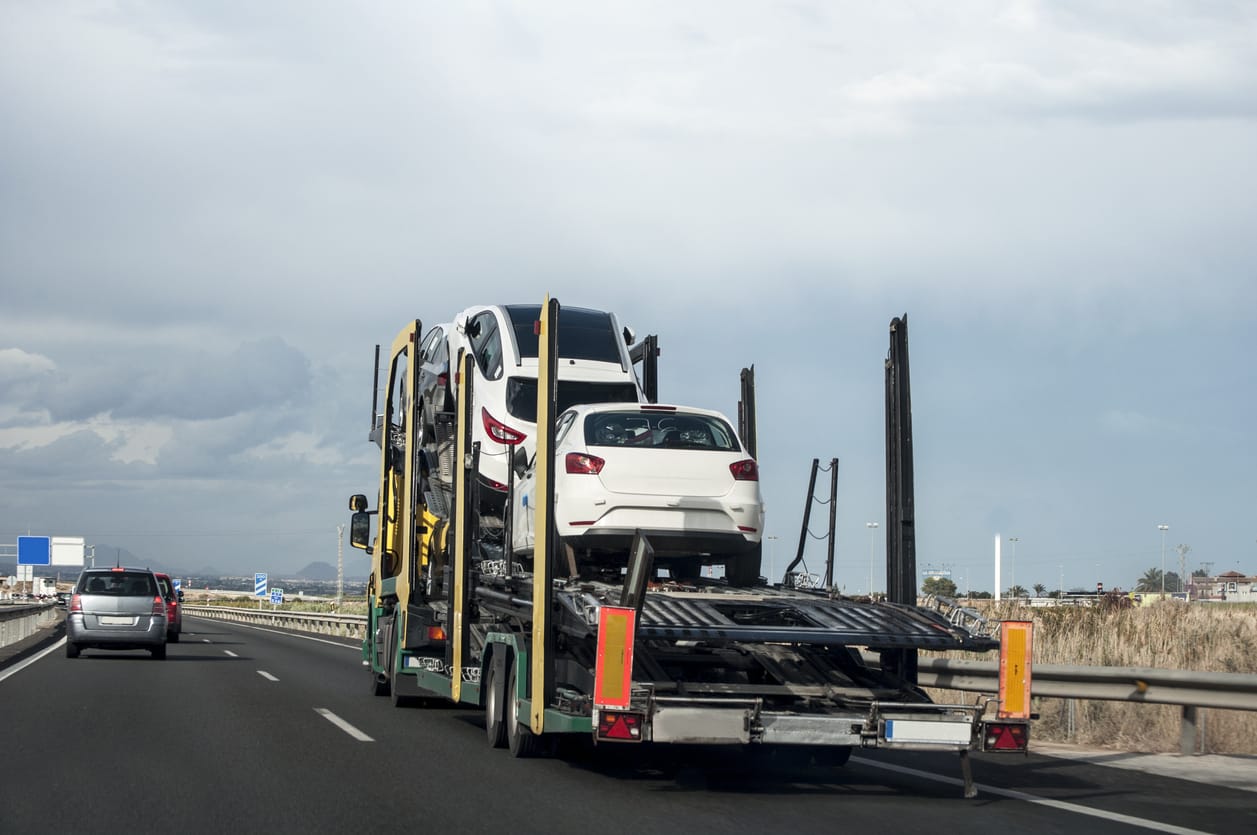
The expense of transporting a car varies from $400 to about $1500, contingent upon the distance, kind of automobile, and kind of shipping service selected. The cost of shipping a car for a distance of 1000 miles can cost around $950 while shipping a car for a distance of 2500 miles can cost around $1700.
Several factors can affect the cost of shipping your car. These factors include:
- Distance: The distance your car needs to travel will affect the cost of shipping. The longer the distance, the higher the cost.
- Type of Vehicle: The type of vehicle you need to transport can also affect the cost. Larger vehicles such as SUVs and trucks may cost more to ship than smaller cars.
- Type of Shipping Service: The type of shipping service you choose can also affect the cost. Enclosed carriers are more expensive than open carriers because they offer better protection for your car.
- Timing of the Shipment: The time of the year and the time of the week can affect the cost of shipping. Shipping during peak seasons such as summer can be more expensive than shipping during off-peak seasons.
- Additional Services: If you require additional services such as expedited shipping or door-to-door delivery, this can increase the cost of shipping.
If you want to save money on car shipping, there are several tips you can follow:
- Plan: The more time you have to plan your car shipment, the more money you can save.
- Choose an open carrier: Open carriers are less expensive than enclosed carriers because they can transport more vehicles at once.
- Be flexible with the delivery date: If you can be flexible with the delivery date, you may be able to save money on car shipping.
- Compare prices: Get quotes from several car shipping companies to compare prices.
- Remove unnecessary items from your car: Removing unnecessary items from your car can help reduce the weight of the vehicle, which can lower the cost of shipping.
The cost of shipping a car can vary based on several factors. By understanding these factors and following the tips provided, you can save money on car shipping. Remember to choose a reputable car shipping company to ensure that your vehicle is transported safely and efficiently.
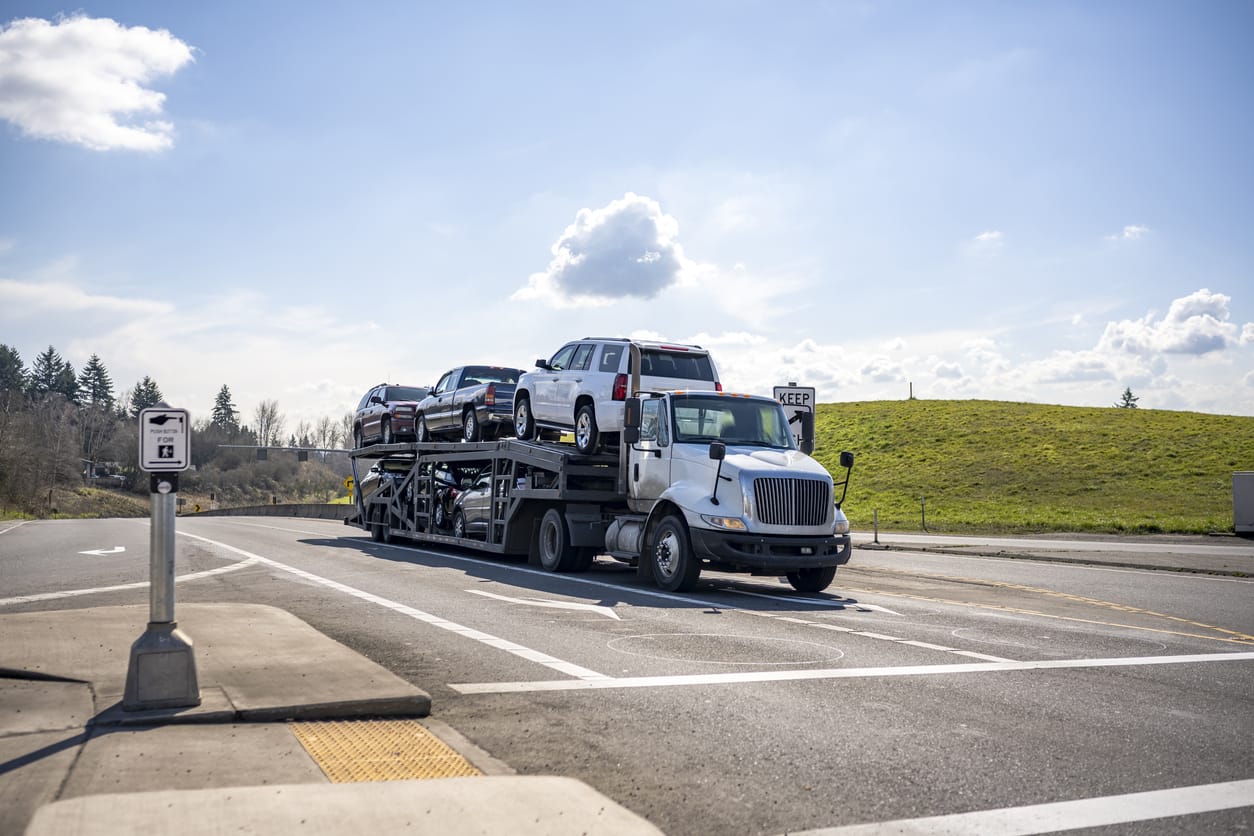
There are several steps that you need to take to ensure a smooth and hassle-free car shipping process. These steps will help you ship your car with confidence.
The first step in shipping your car is to research shipping companies that specialize in vehicle transportation. Look for companies with good reputations and positive reviews from past customers. You can check out their websites, ask for referrals from friends or family, or use online directories to find reputable shipping companies.
There are two main transport methods when it comes to shipping a car: open transport and enclosed transport. Open transport is the more affordable option and involves loading your car onto an open trailer. Enclosed transport is more expensive but offers added protection for your vehicle, as it’s loaded into a covered trailer.
Once you’ve decided on a transport method, it’s time to select a vehicle shipping company. Make sure the company you choose has the necessary licenses and insurance to transport vehicles, and that they offer the transport method you prefer.
Next, you’ll need to choose a delivery location for your car. This could be a terminal or a specific address, depending on your preferences and the options offered by your chosen shipping company.
Once you’ve selected a company and delivery location, it’s time to schedule the transport. Make sure to provide the shipping company with all the necessary details, such as your car’s make and model, the pick-up location, and the delivery location.
Be sure to let the dealer or seller know when and where the car’s getting picked up for shipping. To ensure a smooth transition, coordinate with them and get it sorted.
Before your car is loaded onto the trailer, it’s important to perform a thorough pre-delivery inspection. This involves checking the car’s condition and documenting any existing damage or issues. Make sure to take photos or videos to have evidence in case of any disputes later on.
Once your car arrives, be sure to do a quick check-over to make sure it’s in the same shape as when it left. You don’t want any nasty surprises. If there are any issues or damage, make sure to document them and notify the shipping company as soon as possible.
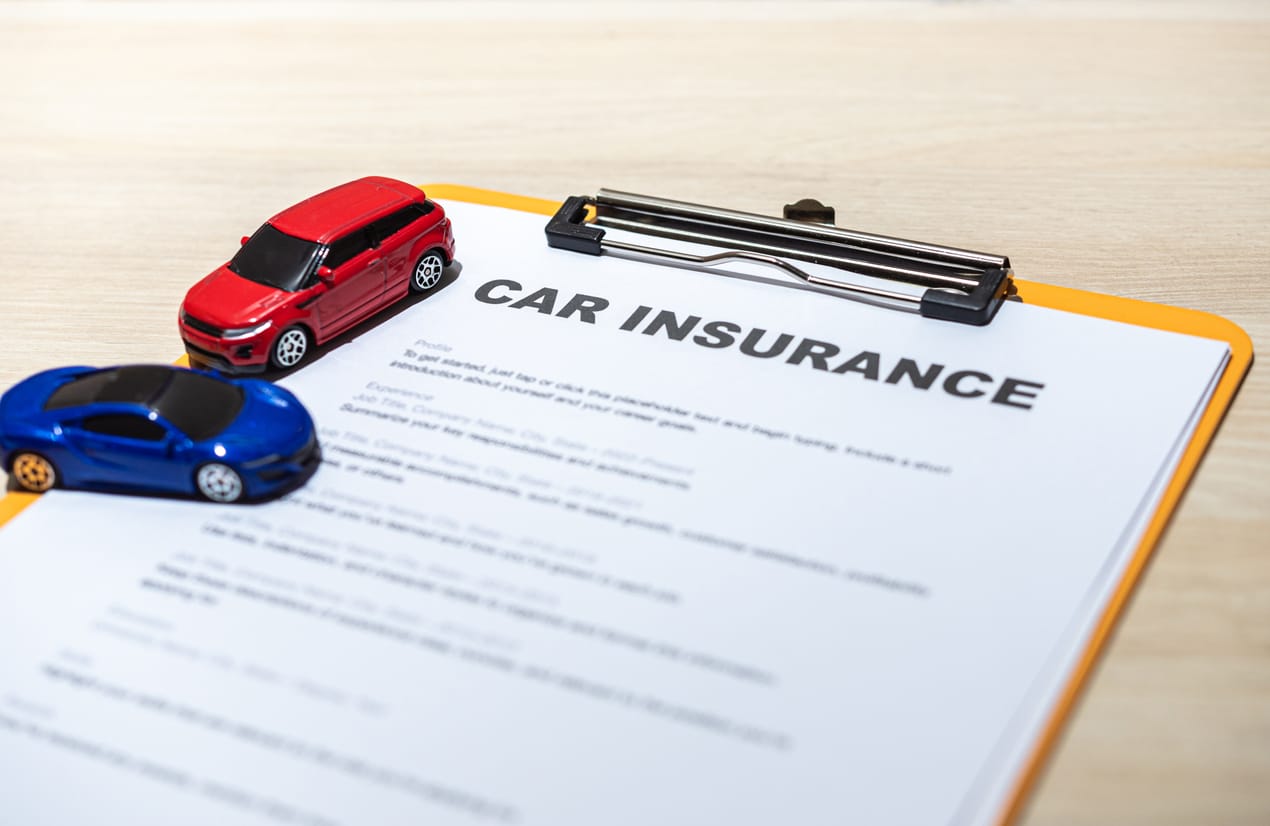
When you decide to transport your vehicle, there are several important things to consider. One of the most important is insurance. Your car is likely one of your most valuable possessions, and you want to make sure it is fully protected during transport. That’s why auto transport insurance is essential.
Auto transport insurance is designed to protect your vehicle from damage or loss during transport. It covers a wide range of potential risks, from accidents and theft to natural disasters and vandalism. Without proper insurance coverage, you could be left with a significant financial loss if something goes wrong.
There are several types of auto transport insurance coverage available, including:
- Liability Insurance: This type of coverage protects the carrier and the customer in the event of an accident during transport. It covers damage or injury to third parties and their property.
- Cargo Insurance: Cargo insurance covers damage or loss to the vehicle being transported. This coverage is typically required by law and is often included in the cost of transport.
- Gap Insurance: Gap insurance covers the difference between the market value of the vehicle and the outstanding loan balance if the vehicle is lost or damaged during transport.
- Comprehensive Insurance: Comprehensive insurance covers damage or loss to the vehicle being transported, as well as any other vehicles or property that may be damaged during transport.
When you are considering transport options for your vehicle, it is important to discuss insurance coverage with the transport company. Make sure you understand what type of coverage is included in the transport cost and what additional coverage options are available.
To obtain auto transport insurance, you can either purchase it directly from the transport company or through an independent insurance provider. Be sure to compare coverage options and prices to find the best policy for your needs.
Simply put, auto transport insurance is an essential part of vehicle transport. It protects your valuable asset from potential loss or damage during transport. By understanding the different types of coverage available and how to obtain it, you can ensure that your vehicle is fully protected during transport.

This is an important step to ensure a smooth and hassle-free transportation process.
- Clean your car: Thorough cleaning is advised bofore you ship that car. This will make it easier to inspect your car for any damage before it is loaded onto the carrier. It is also important to remove any personal belongings from the car.
- Check for damage: Inspect your car for any damage such as dents, scratches, or other visible damage. Take photos of any existing damage to ensure you have documentation in case of any disputes.
- Disable any alarms: If your car has an alarm system, it is important to disable it before shipping. This will prevent any unnecessary alarms from going off during transportation.
- Check fluid levels: Check the fluid levels in your car including the oil, coolant, and brake fluid. Make sure they are at the proper levels.
- Check tire pressure: Make sure your tires are inflated to the proper pressure. This will help prevent any damage to the tires during shipping.
- Remove any custom accessories: If your car has any custom accessories such as spoilers or bike racks, it is best to remove them before shipping. This will prevent any damage to the accessories during transportation.
- Leave a quarter tank of gas: It is recommended to leave a quarter tank of gas in your car during shipping. This will allow the carrier to move your car easily without carrying too much extra weight.
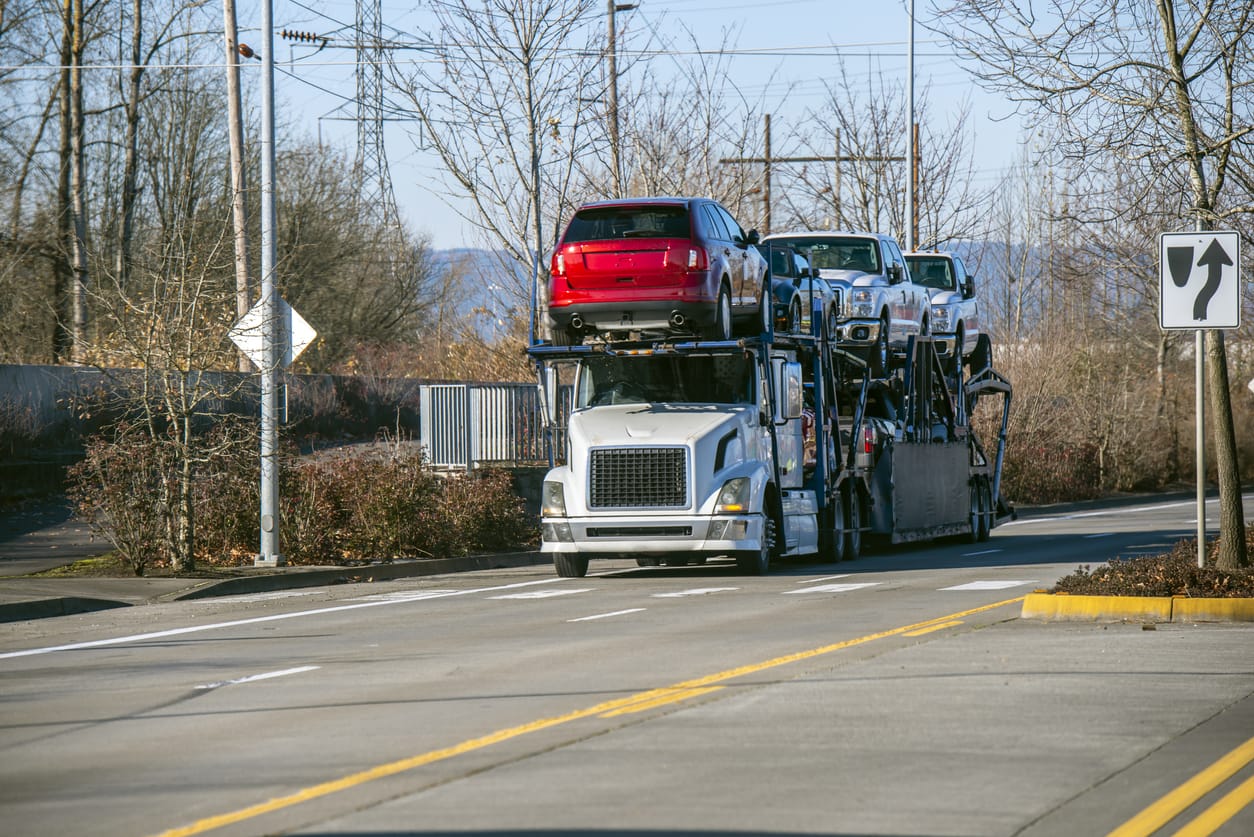
When it comes to shipping your car, there are two types of companies that you can choose from brokers and carriers. Both of these companies offer car shipping services, but they operate in different ways.
Brokers act as intermediaries between you and the carrier that will transport your car. They will gather information from you about your car and your shipping needs, and then provide that information to carriers who can provide the services you need. Brokers are essentially matchmakers, connecting you with the right carrier for your needs.
Carriers, on the other hand, are the companies that will physically transport your car from one location to another. They have the trucks, drivers, and equipment needed to move your car safely and efficiently.
While both brokers and carriers can provide you with car shipping services, there are some key differences between the two that you should be aware of.
Brokers can offer you more flexibility in terms of pricing and shipping options. Because they work with multiple carriers, they can compare prices and services to find the best match for your needs. They can also provide you with more options for shipping, including door-to-door delivery and expedited shipping.
Carriers, on the other hand, have more control over the shipping process. They have direct contact with the drivers who will be transporting your car, and they can ensure that your car is handled with care and delivered on time.
So, which type of company is best for you? It depends on your individual needs and preferences. If you are looking for more options and flexibility, a broker may be the right choice for you. If you want more control over the shipping process and a direct relationship with the carrier, then working with a carrier may be the way to go.
At Ship A Car, Inc, we the best of both worlds as a Broker. We have a network of trusted carriers that we work with, so we can match you with the right carrier for your needs. We also offer competitive pricing and a variety of shipping options, so you can choose the service that works best for you. Whether you are shipping a car across the country or just a few states away, we can help you get it there safely and on time. 
Let’s take a moment to recap the different types of car shipping services available. We’ve discussed open and enclosed carrier shipping, as well as door-to-door and guaranteed shipping options. Each of these services has its advantages and disadvantages, depending on your individual needs and preferences.
When it comes to choosing a car shipping company, it’s important to do your research and consider all the factors that can affect the cost and quality of service. This includes the distance of the shipment, the type of vehicle being shipped, the type of shipping service you prefer, the timing of the shipment, and any additional services you may require.
One of the most important factors to consider when choosing a car shipping company is reliability. You want to make sure you choose a company that is experienced, trustworthy, and has a proven track record of delivering vehicles safely and on time.
At Ship A Car, we pride ourselves on being a reliable and professional car shipping company. Our network of experienced drivers and logistics experts work hard to ensure that every vehicle we transport arrives at its destination safely and on time.
We offer a wide range of car shipping services to meet your individual needs and budget, including open and enclosed carrier shipping, door-to-door delivery, and guaranteed shipping options.
Finally, car shipping can be a convenient and cost-effective way to transport your vehicle from one location to another. By choosing a reliable and experienced car shipping company like Ship A Car, you can rest assured that your vehicle will be in good hands throughout the entire shipping process.

Answer: Car shipping is the process of transporting a vehicle from one location to another, typically using a specialized auto transport carrier.
Answer: Car shipping works by first researching and selecting a reputable car shipping company, choosing a transport method, and scheduling the shipment. The vehicle is then loaded onto a carrier and transported to its destination.
Answer: The cost of car shipping varies depending on several factors such as the distance, type of vehicle, type of shipping service, and timing of the shipment. On average, car shipping can cost anywhere from $500 to $1500.
Answer: The types of car shipping services include open carrier shipping and enclosed carrier shipping, as well as door-to-door auto shipping and guaranteed shipping.
Answer: Yes, car shipping is generally safe for vehicles. Reputable car shipping companies take precautions to protect vehicles during transport and carry insurance to cover any damages that may occur.
Answer: The time it takes to ship a car depends on several factors such as the distance, type of transport method, and timing of the shipment. On average, car shipping can take anywhere from a few days to a few weeks.
Answer: Yes, many car shipping companies provide tracking services that allow you to monitor the progress of your vehicle during transport.
Answer: Yes, it is recommended that you prepare your vehicle before shipping by removing any personal belongings, securing loose parts, and washing the exterior to make it easier to inspect for damages before and after transport.
